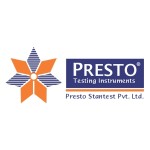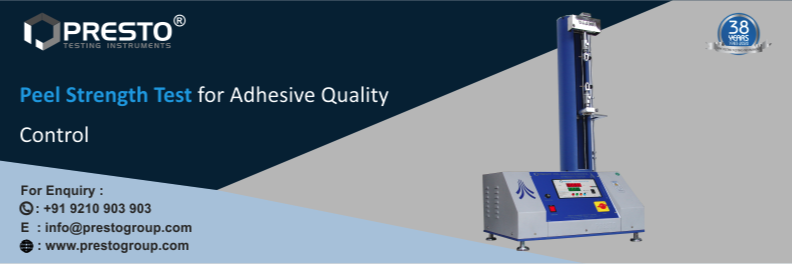In industries where adhesive materials are used, such as packaging, automotive, or electronics, ensuring the durability and reliability of bonds between surfaces is critical. A peel strength tester is a specialized device designed to measure the adhesive strength between two materials. By evaluating the peel bond strength, manufacturers can guarantee that products will perform well under real-world conditions. This blog will provide an overview of the peel strength tester, its importance, and how it contributes to material testing.
What is a Peel Strength Tester?
A peel strength tester is a precision machine that measures the force required to peel one material from another at a controlled angle and speed. This test helps determine the adhesive strength or bonding integrity of materials such as tapes, labels, laminates, and other bonded surfaces. It provides valuable data on how well adhesives hold up under stress, ensuring that products maintain their quality throughout their lifecycle.
Key Features of a Peel Strength Tester:
- Force Measurement:
- The machine measures the force required to peel the materials apart, providing insights into the adhesive’s strength and durability.
- Controlled Angle and Speed:
- Most peel testers allow the test to be conducted at various angles (e.g., 90° or 180°) and speeds, enabling users to replicate real-world conditions and assess performance accurately.
- Digital Display and Data Logging:
- Many modern peel testers come with digital displays for real-time data collection and analysis. Some machines also allow data to be stored and exported for further review.
Types of Peel Tests
There are several types of peel tests conducted depending on the application and materials being tested. The most common types include:
- 180-Degree Peel Test:
- In this test, the materials are peeled apart at a 180° angle, which is often used for measuring adhesive bonds in tapes or films.
- 90-Degree Peel Test:
- This test measures the force required to peel a material at a 90° angle and is typically used in testing laminates and other bonded materials.
- T-Peel Test:
- The T-peel test measures the adhesive bond between flexible materials, often used for evaluating the bonding strength of fabrics, rubber, or plastic.
Importance of Peel Strength Testing
Peel strength testing is vital in industries where adhesive performance plays a crucial role in product integrity. For instance:
- Packaging Industry:
- Ensures that labels and seals remain intact during transportation and storage, protecting the product inside.
- Automotive Industry:
- Assesses the bonding strength of adhesives used in various components like dashboard elements, ensuring long-term performance and safety.
- Electronics Industry:
- Evaluates the bonding of protective films or screens to prevent premature wear and tear.
Peel Bond Strength Tester: Enhancing Quality Assurance
A peel bond strength tester is specifically designed to measure the bond strength between surfaces. It helps manufacturers:
- Maintain Quality Control:
- By testing peel strength at various stages of production, manufacturers can ensure that products meet quality standards.
- Avoid Product Failures:
- Weak adhesive bonds can lead to product failures, recalls, and customer dissatisfaction. Regular testing helps prevent such issues.
- Optimize Materials:
- Testing helps manufacturers identify the best adhesives and materials for specific applications, leading to improved product design and functionality.
Peel Tester Machine: Advanced Testing Capabilities
The modern peel tester machine offers automated, accurate testing with user-friendly interfaces. These machines are essential for industries that require precise data to maintain product consistency. They come equipped with:
- High Sensitivity Sensors:
- For precise measurement of the peel force at different angles and speeds.
- Digital Readouts:
- Instant, real-time readings for easy monitoring and reporting.
- Data Logging and Exporting Options:
- Many peel tester machines allow users to store data and export it for detailed analysis, helping in maintaining production quality.
Conclusion
A peel strength tester plays a crucial role in ensuring the durability and reliability of adhesive materials across multiple industries. From packaging to electronics, peel testing provides essential insights into how materials will perform under stress. Whether it’s a peel bond strength tester or an advanced peel tester machine, these tools are vital for maintaining quality control and ensuring product safety. Investing in high-quality testing equipment not only helps manufacturers meet industry standards but also enhances customer satisfaction by delivering reliable, high-performance products.






Comments